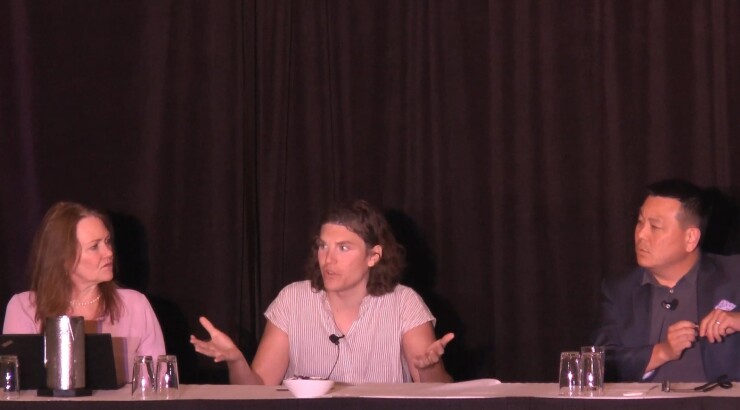Henry Yoshida isn’t a fan of referring to alternative investments as, well, alternatives.
He understands that is how they’re categorized by the industry and consumers. But for the
He adds that these investments that don’t neatly fit into the definition of what is considered “mainstream” may be the key to advisors getting to know their clients as individuals instead of as a collection of numbers that need to be tracked.
“It's a large asset class, but it's personal to people and what they believe in. I think the way that advisors should sort of position this is as a really good opportunity to get to know your clients on a slightly different dimension,” said Yoshida, a CFP who heads up a fintech platform that enables investors to set up self-directed IRAs and solo 401(k)s.
“When I started my career, all of the questions that we asked prospective clients were about the numbers. How much do you have here? What are your goals? In how many years and how many days are you going to retire? How old are your children? How many do you have?” he continued. “They were all questions that you can answer with a number. And now I think you're getting more into understanding the psychology of people and what matters to folks. What do you want to do with your money, and what things do you fundamentally believe in?”
Yoshida shared his perspective and advice relating to alternative investments earlier this month during
Financial Planning
Browning echoed Yoshida’s sentiments on the naming convention, stating that the word “alternative” is a misnomer that evokes feelings of something that lives on the outskirts and isn’t part of the traditional investment landscape.
“But the alts market is actually about $10 trillion in assets spread out across hedge funds, private equity, various private investments … and most of the investors, although not all, are institutional,” Browning said. “A lot of that does filter down to retail investors through pension funds, which most of the big ones have about 25% of their assets in alternatives. Meanwhile you look at crypto, which is about a $1 trillion market, and it's almost presented as a mainstream retail investment.
“There's this tension between alternatives as fringe versus mainstream, and crypto as mainstream versus super alternative.”
Ortel, who founded the New York-based socially responsible investing startup Invest Vegan after nearly a decade with the
As things continue to ebb and flow between progress and tragedy, there is a desire to invest in assets that are alleviating the world’s problems instead of piling on. A sense of urgency creeps in when
“A lot of investors — particularly younger investors — are coming to the market with a different perspective. They've seen the giant recession. They've seen a lot of the worst people they know get rich in cryptocurrencies. They've seen all sorts of things that challenge the way that we are taught,” Ortel said. “Think about what people are really looking for. People who are morally aligned and have misgivings or uncertainties about holding some of this stuff … they’re nervous looking at what these things own because I'm sure it'll be a who's who of some of the worst ethical failings. And they’re looking for an alternative to that.”
Ortel added that with that new perspective from investors comes a need to shake up how things are done in the industry.
“The old methodology that we have, like the S&P Index Committee. Guys in bow ties who meet in Midtown and decide what's in there. That's not necessarily the same values-driven or morally aligned thing that's going to resonate with that next generation of investors,” Ortel said. “So I think it's a really straightforward question of, how do you create a portfolio for a client that's going to allow them to experience the benefits of compounding? And you need to build them a portfolio that they can grok and make sense of, not just an arbitrary list of like 700 stocks that are kind of retabulated and reorganized without much apparent meaning.”
When discussing why investors need alternatives in their retirement portfolios, Yoshida pulled on the time he spent working with retirement accounts at Merrill Lynch and as the co-founder of robo-advisor Honest Dollar, which Goldman Sachs bought in 2016.
“I think about the way the investment world has evolved since I started my career … when I was at Merrill Lynch in the year 2000, an alternative investment was a publicly registered 40 Act fund that invested in, I think (it) was stocks in Vietnam or China. That was an alternative, but these were publicly traded investments,” he said. “Now, you define it as crypto, real estate, private equity and venture. So I just think that investors today need to have some exposure to what we consider alternative asset classes in their portfolios or it's going to be hard for them to properly capture a portfolio that encompasses the whole available investment world.”
Sticking with crypto as an example, Yoshida said while some investors may not fully understand bitcoin, they understand that it is being recognized by the most established financial entities in the world.
He noted that just a week before his appearance at INVEST 2022, Fidelity CEO Abigail Johnson traveled to Austin, Texas, to deliver a keynote speech at a crypto conference.
“Fidelity coming to town and talking about it might indicate that, hey, it's somewhat mainstream, and one particular client may see that and think they should own a part of it. And you have another (client) who might say they’re just fundamentally against it for energy consumption reasons. Or because it's not based on a tangible business model that I can assess the value from, but they like real estate,” he said. “And then someone else might say, ‘hey, if big bad Fidelity is spending hundreds of millions or billions of dollars and they're flying their $23 billion dollar net worth CEO around to talk about crypto, then maybe this is an asset class I should go in on.’
“And to be fair, when I started, I remember talking to folks about Amazon.com. No one really understood Amazon.com when (it) dipped all the way down to $6 a share. But now it's probably one of the most systemically important companies in the United States.”
As far as demand in services provided by organizations like Invest Vegan going up as interest in alternatives rises, Ortel said she sees a demand for “what we'll call in a friendly way non-bull**** ESG,” and she is working to meet that demand.
“We're constantly talking with the folks that are running the equity portfolios. And what I am simply doing is taking those ownership strategies that some of the more granola asset owners are doing and adding a level of retail scrutability to it so that individual clients can actually understand what's happening and how it’s related to their choices,” Ortel said. “So I don't think that Invest Vegan will ever take on BlackRock necessarily. But I do think that the core practices, the things that we're actually doing and the product that we're offering are already very mainstream in some ways.”








